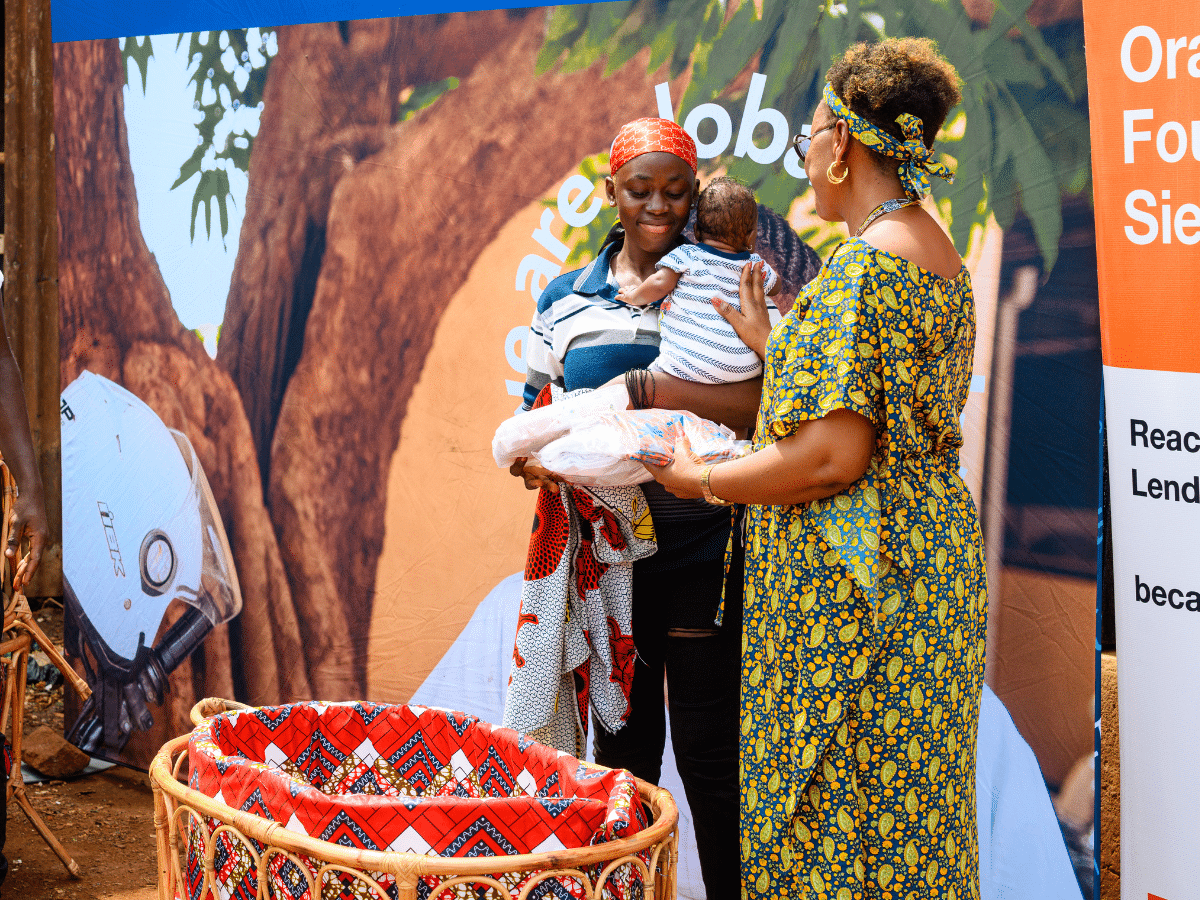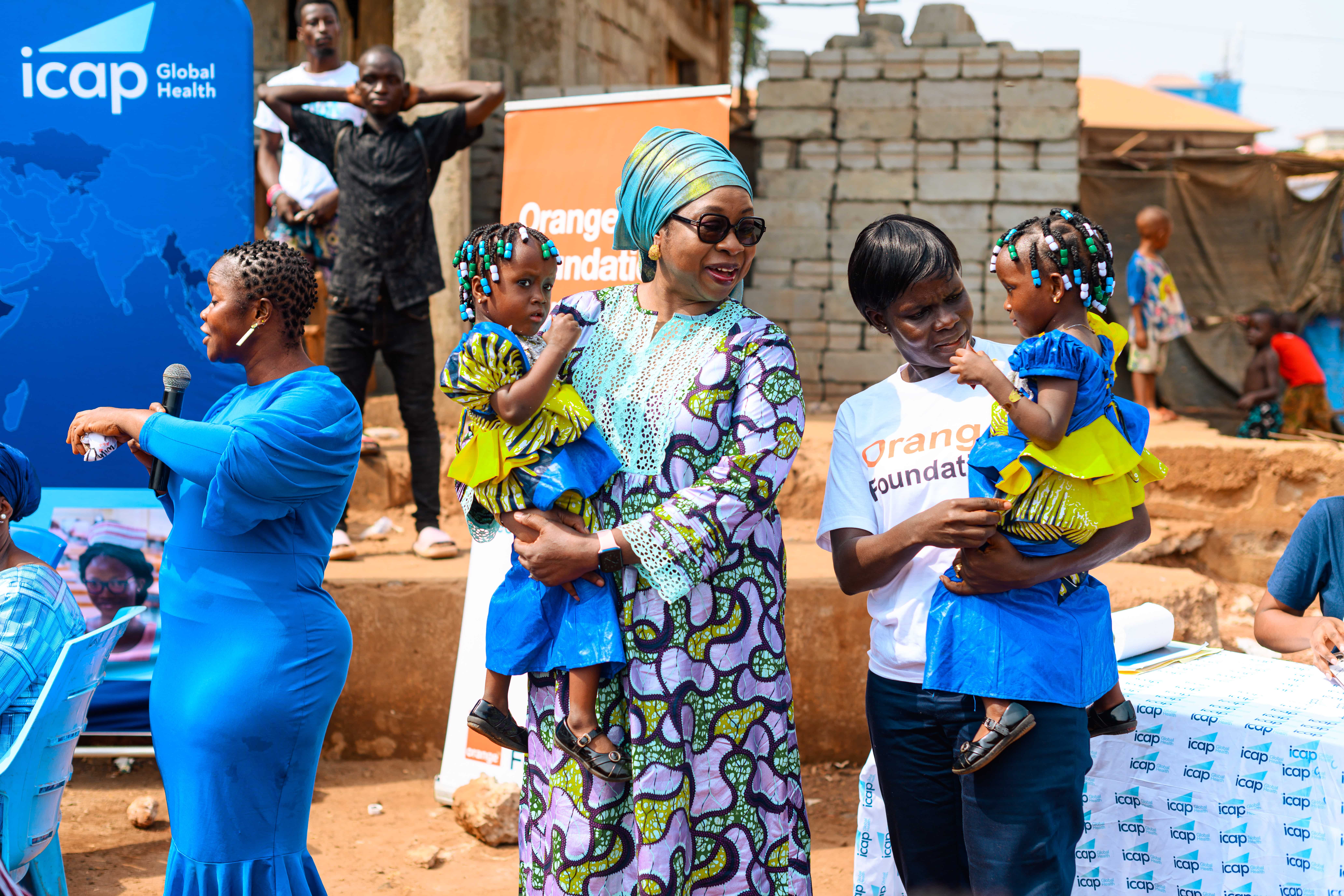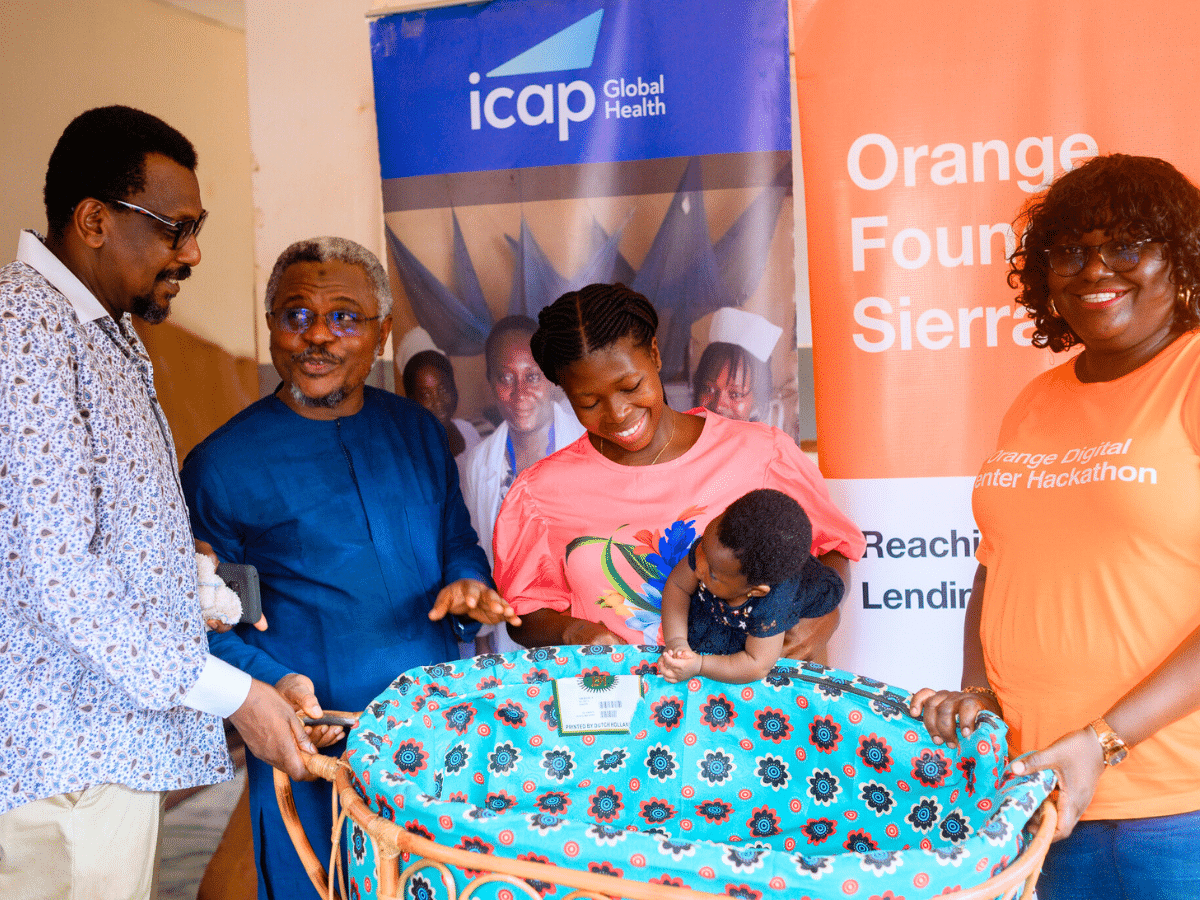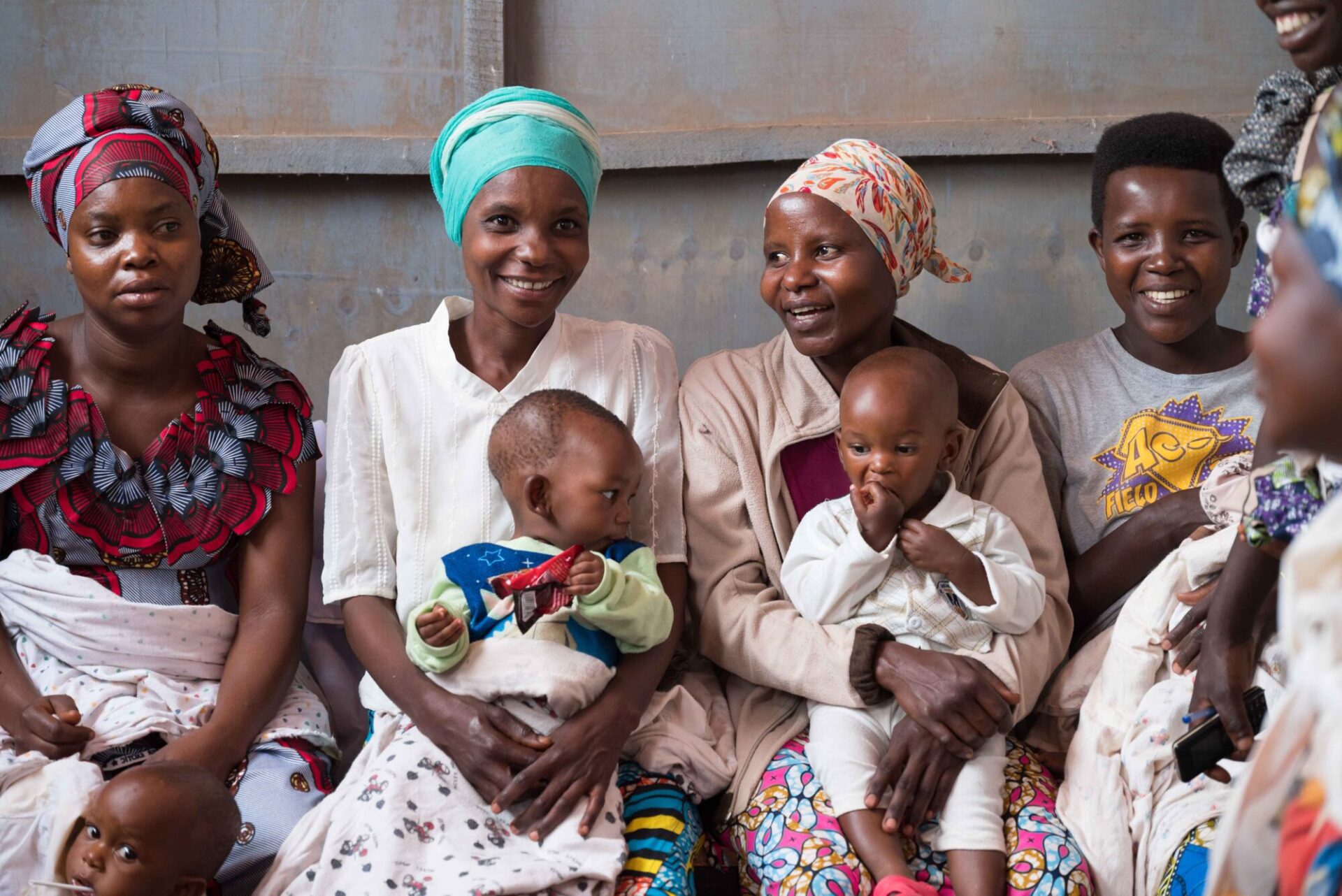In the densely populated settlement of Kroobay in Freetown, Sierra Leone, families have faced a number of challenges in recent years. Due to its low-lying coastal location and the community’s unstable infrastructure, Kroobay is prone to flooding, especially during the rainy season. Community members have limited access to essential services, such as clean water, sanitation, health services and personnel, electricity, and proper waste management, leading to increased health risks. Among those most affected are women and children.
Maternal mortality is among the highest in the world in Sierra Leone. Maternal deaths, including from obstetric hemorrhage, hypertension, and obstructed labor, among other factors, account for 36 percent of all deaths among women ages 15 to 49.
In 2020, ICAP at Columbia University, in partnership with the Sierra Leone Ministry of Health (MOH) and with support from Orange Telecommunication, implemented a transformative health initiative – Safeguarding Maternal Health – that promised to address health challenges faced by women and children in Kroobay. By the program’s end in April 2024, over 600 pregnant women were identified and connected to health facilities for antenatal care and maternal deaths reduced from an average of three deaths per year to zero.
The Safeguarding Maternal Health project adopted a multi-phase implementation approach with the primary goal of improving access to maternal health services among Kroobay community members during the COVID-19 pandemic. The program first established a multi-disease screening booth in Kroobay, which assessed and supported such health challenges as malaria, HIV, COVID-19, and anemia.
Throughout the project, ICAP trained 40 MOH-appointed community health workers to engage with the community to raise awareness about maternal health services, promoting health-seeking behaviors through regular household visits and tailored health messages. At these visits, health care workers provided pregnant women and their families individual counseling and screening of risk factors for communicable and non-communicable diseases, such as hypertension, diabetics, anemia, malaria, and HIV. Community health workers also provided pregnant women information on the importance of delivering their baby at a health facility, nutritional care during pregnancy, and breastfeeding, linking them to health facilities for antenatal care, which, in addition to delivery, would include vital services such as HIV testing, iron and folic supplements, and pregnancy monitoring, among others.
Crucially, the Safeguarding Maternal Health program provided baby care start-up kits for 118 new mothers. Included in the kits were diapers, underwear, bedding, baby clothing, a baby crib, and other essential materials.

A mother and her child receive a crib and supplies from ICAP’s Safeguarding Maternal Health program in Sierra Leone.
“This project has enabled our women to enjoy their journey to motherhood,” said Pa Alimamy Conteh, a chief in Kroobay. “Others are even yearning to get pregnant because of how they see the community health workers caring for their mates who are pregnant. Pregnancy is now considered a safe journey because of this project.”
Over the course of the project period, over 2,000 households received crucial health messages from community health care workers. The 221 women that were due to deliver within the project period successfully delivered at a health facility. Throughout the community, 2,243 community members were screened for diseases, and there were no recorded maternal deaths in Kroobay from December 2020 to March 2024.

Mame Toure, director of ICAP in Sierra Leone (left), greets children in the Kroobay community with a representative from Orange Telecommunication (right) as the teams offer mothers childcare supplies.
Salamatu Kargbo, a beneficiary from the first phase of the project, said that when she became pregnant at age 13, she felt abandoned and alone. The Safeguarding Maternal Health program gave her hope for moving forward. “I am grateful to ICAP and Orange for giving me a second chance to live,” Kargbo said. “The project staff guided me to attend all antenatal care appointments, which enabled me to safely deliver a healthy baby girl.”
Salay Kanu, a beneficiary from the final phase of the project, said that, before the project was implemented, she didn’t have a crib to lay her child down to sleep in. “This project has brought life to our homes and joy to our hearts as mothers. Now with support from ICAP and Orange, my newborn has a decent bed to sleep in,” Kanu said.
“A lot goes into achieving such impactful success,” said Francis Moses, program manager of the Sierra Leone Ministry of Health’s Reproductive Health Program. “The decline in the number of maternal deaths in Kroobay community is a testament of the effectiveness of this project.”
The Safeguarding Maternal Health program officially closed in April 2024 after three years of success, with ICAP having supported knowledge- and skills-building of health care and community workers who will continue to help women and children to live healthy lives in Kroobay.
About ICAP
A major global health organization that has been improving public health in countries around the world for two decades, ICAP works to transform the health of populations through innovation, science, and global collaboration. Based at Columbia Mailman School of Public Health, ICAP has projects in more than 40 countries, working side-by-side with ministries of health and local governmental, non-governmental, academic, and community partners to confront some of the world’s greatest health challenges. Through evidence-informed programs, meaningful research, tailored technical assistance, effective training and education programs, and rigorous surveillance to measure and evaluate the impact of public health interventions, ICAP aims to realize a global vision of healthy people, empowered communities, and thriving societies. Online at icap.columbia.edu







